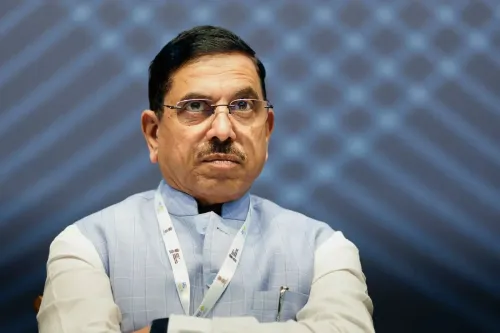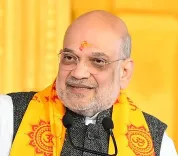Is India’s Microfinance Sector Set to Surge by 12–15% in FY26?

Synopsis
Key Takeaways
- Projected Growth: 12–15% in FY26.
- Resilience: History of recovery from disruptions.
- Financial Inclusion: Vital for women and small farmers.
- Extensive Reach: Serving over 7.9 crore borrowers.
- Regulatory Challenges: Balancing growth with responsible lending.
Mumbai, April 28 (NationPress) The micro-finance industry (MFI) in India is anticipated to witness a growth of 12–15% in FY26 under a conservative scenario, returning to FY24 levels, as revealed in a report published on Monday.
In a more optimistic scenario, especially if rural incomes see a resurgence due to favorable monsoon conditions, growth could potentially exceed expectations, according to MP Financial Advisory Services LLP (MPFASL).
The MFI sector has shown remarkable resilience, bouncing back from past challenges such as demonetization and the COVID-19 pandemic.
India’s microfinance landscape has emerged as a crucial element of financial inclusion, empowering access to credit for marginalized groups, particularly women, small farmers, and micro-entrepreneurs in rural and semi-urban regions.
With a robust CAGR of 28% from FY14 to FY24, the sector now supports over 7.9 crore unique borrowers across 92% of the nation’s districts, showcasing its extensive reach.
Looking forward, the outlook for FY26 remains cautiously optimistic, the report noted.
“The microfinance sector stands at a crucial juncture, balancing sustainable growth with responsible lending. The MFIN guardrails are a timely initiative to mitigate over-indebtedness and enhance asset quality, even though they may impose short-term operational and financial pressures, particularly on smaller MFIs,” stated Mahendra Patil, Founder and Managing Partner of MP Financial Advisory Services LLP.
While growth might experience a temporary slowdown due to increased competition as the sector adjusts to the recent MFIN regulations amidst rising delinquency rates, these reforms are expected to bolster credit discipline, improve portfolio quality, and ensure long-term resilience.
However, the primary challenge will be to guarantee that such structural enhancements do not compromise the overarching objective of financial inclusion. As of March 2024, approximately 37% of India’s rural populace is served by the MFI sector.
“A balanced strategy, integrating policy support, innovative credit evaluation, and strategic alliances, will be vital to maintaining outreach while solidifying the sector’s foundation,” Patil added.
Furthermore, the rise of fintech companies and non-NBFC-MFIs offering diverse credit options has simplified access to funds, further facilitating multiple lending opportunities.










